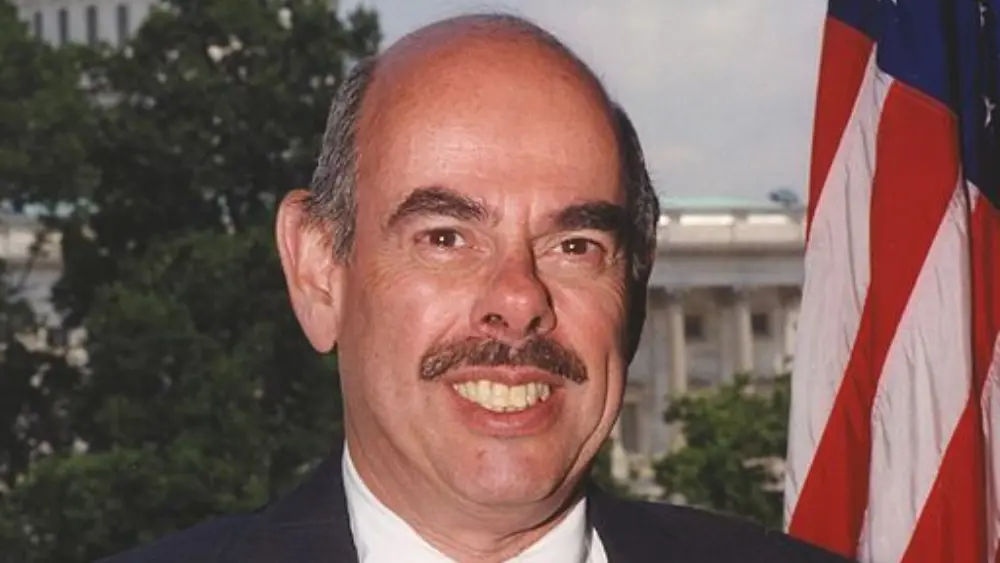Henry Arnold Waxman, born on September 12, 1939, in Los Angeles, California, emerged as a stalwart figure in American politics. With a career spanning over four decades, Waxman’s journey in public service is marked by a commitment to progressive ideals, legislative prowess, and an unwavering dedication to addressing critical issues facing the nation.
Early Life and Education
Henry Waxman’s journey into public service began with a solid foundation in education and a commitment to the values instilled by his upbringing. Growing up in Los Angeles, he was immersed in a politically active environment, which fueled his passion for social justice and civic engagement. His academic pursuits at the University of California, Los Angeles (UCLA), and Loyola University’s law school provided him with the knowledge and skills necessary for a career in law and public policy.
Waxman’s early life experiences laid the groundwork for a trajectory that would see him become a prominent figure in American politics. The intersection of his education, upbringing, and the dynamic political landscape of Los Angeles would shape his future as a dedicated public servant and advocate for progressive causes.
Henry Waxman: Entry into Politics The California State Assembly
Henry Waxman’s entry into politics in 1969 marked the beginning of a long and impactful career in public service. Representing the California State Assembly, Waxman quickly established himself as a champion of progressive causes. During this initial phase of his political journey, Henry Waxman’s concentrated focus on environmental issues and healthcare reform reflected a deep-seated commitment to addressing pressing societal challenges. Furthermore, his legislative work in the California State Assembly not only showcased his dedication but also set the stage for the broader impact he would later have on national policies. Additionally, Waxman’s early efforts laid a solid foundation for his subsequent influential role in shaping the course of public discourse and legislative action.
In the California State Assembly, Waxman demonstrated an ability to navigate complex legislative landscapes and advocate for policies that aligned with his vision for a more just and equitable society. In this nascent stage of his political career, Henry Waxman laid the groundwork for the reputation he would build as a dedicated and effective legislator. This early phase not only foreshadowed his later contributions on the national stage but also served as a crucial catalyst for his enduring impact. Furthermore, it was during these formative years that Waxman honed the skills and principles that would later distinguish him as a formidable force in the political arena.
U.S. House of Representatives: The Beginning
Henry Waxman’s transition to the U.S. House of Representatives in 1974 marked a significant step in his political career. Representing California’s 24th congressional district, Waxman brought his passion for progressive policies to the national stage. In the House, he quickly became known for his dedication to consumer protection, advocating for policies that would safeguard the rights and well-being of American consumers. Waxman’s unwavering commitment to ensuring access to quality healthcare also emerged as a prominent aspect of his legislative agenda during these formative years. In this critical period, he not only laid the groundwork for his future work on healthcare-related issues but also began to strategically position himself as a champion for public health. Additionally, Waxman’s early dedication to healthcare concerns set the stage for the comprehensive policies he would later advocate on the national stage, solidifying his reputation as a stalwart advocate for accessible and effective healthcare.
Waxman’s early years in the U.S. House of Representatives were characterized by his active engagement in environmental issues. Recognizing the importance of environmental stewardship, he advocated for legislation aimed at protecting the nation’s natural resources and addressing environmental challenges. These initial years in the House showcased Waxman’s ability to tackle a diverse set of issues, from consumer rights to environmental sustainability, and set the stage for the impactful legislative career that would unfold over the following decades.
Henry Waxman: Advocacy for Healthcare and Public Health
Henry Waxman’s impact on healthcare policy in the United States is indelible, particularly during his tenure as the chairman of the House Energy and Commerce Committee. Recognizing the critical need for healthcare reform, Waxman played a key role in shepherding significant legislation through Congress. One of the crowning achievements of his career was his instrumental role in the passage of the Affordable Care Act (ACA) in 2010. This landmark legislation, often referred to as Obamacare, aimed at transforming the nation’s healthcare system by expanding access, improving quality, and controlling costs. Waxman’s leadership and advocacy were integral to the success of this comprehensive healthcare reform, marking a transformative moment in the nation’s healthcare landscape.
Waxman’s commitment to public health extended beyond legislative initiatives. Throughout his career, he championed efforts to address public health challenges, from combating tobacco use to addressing infectious diseases. His advocacy for policies aimed at improving public health outcomes showcased a comprehensive approach to healthcare, addressing both individual access to medical care and broader public health concerns. Waxman’s legacy in the realm of healthcare and public health stands as a testament to his enduring commitment to the well-being of the American people.
Environmental Leadership and Oversight
Henry Waxman’s dedication to environmental causes was a defining aspect of his congressional career. Throughout his tenure, he consistently advocated for policies and legislation aimed at addressing environmental challenges. Waxman played a crucial role in shaping legislation to combat air and water pollution, regulate toxic substances, and address the urgent issue of climate change. His environmental leadership was marked by a deep understanding of the interconnectedness of environmental issues and their impact on public health and well-being.
Waxman’s influence on environmental policy extended beyond legislative initiatives. As the chair of the House Oversight Committee, he utilized his position to conduct rigorous investigations into various matters related to environmental protection and corporate accountability. These investigations showcased his commitment to oversight and transparency, ensuring that government agencies and private entities were held accountable for their actions. Waxman’s environmental legacy reflects not only his legislative accomplishments but also his dedication to the oversight and protection of the environment for the benefit of current and future generations.
Henry Waxman: Legislative Prowess and Bipartisanship
Henry Waxman’s legislative prowess set him apart as a formidable figure in Congress. Renowned for his strategic acumen, he earned a reputation as a master tactician capable of navigating the intricate workings of Capitol Hill. Whether championing healthcare reform, environmental policies, or consumer protection, Waxman demonstrated an adept understanding of the legislative process, successfully steering bills through the complexities of committee work, floor debates, and negotiations.
Waxman’s commitment to bipartisanship was a hallmark of his legislative approach. In an era marked by increasing polarization, he stood out for his ability to forge alliances across party lines. By prioritizing collaboration and seeking common ground, Waxman aimed to achieve tangible results for the American people. His pragmatic approach to governance underscored his belief in the importance of putting aside ideological differences to address pressing issues facing the nation. Waxman’s legacy as a legislative architect and bipartisan leader reflects his dedication to effective governance and the pursuit of bipartisan solutions in service to the public.
Retirement and Continued Advocacy
After four decades of dedicated service in Congress, Henry Waxman announced his retirement in 2014. His departure marked the end of an era during which he had played a pivotal role in shaping key legislation and advancing progressive causes. Despite stepping back from elected office, Waxman’s commitment to public service remained unwavering. In the years following his retirement, he continued to be a prominent voice in the political arena, sharing his wealth of experience and knowledge.
Post-retirement, Waxman continued to advocate for progressive policies. Whether through op-eds, public speeches, or involvement with policy organizations, he consistently remained committed to contributing to the national discourse on healthcare, the environment, and other critical issues. Additionally, he effectively conveyed his perspectives and insights, fostering a meaningful dialogue that resonated with diverse audiences. Waxman’s enduring influence and dedication to the ideals he championed throughout his career showcased the lasting impact one individual can have on the trajectory of public policy and the betterment of society.

Henry Waxman: Legacy of Impact and Influence
Henry Waxman’s legacy is firmly rooted; in the substantial and lasting impact he made during his lengthy tenure in Congress. His legislative achievements, coupled with his unwavering dedication to public service, have left an indelible mark on the nation’s political landscape. His influence extends across various policy domains, with a particular emphasis on healthcare, environmental protection, and consumer rights. As the chairman of the House Energy and Commerce Committee, Waxman played a crucial role in steering landmark legislation, including the Affordable Care Act of 2010. This legislation marked a significant stride towards expanding healthcare access and reshaping the American healthcare system, demonstrating Waxman’s commitment to ensuring the well-being of the nation’s citizens.
Moreover, Waxman’s dedication to environmental causes set him apart as a leader in the fight against air and water pollution, the regulation of toxic substances, and the urgent battle against climate change. His role as the chair of the House Oversight Committee further emphasized his commitment to accountability and transparency as he conducted thorough investigations into various issues. Waxman’s legislative prowess, coupled with his adept ability to navigate bipartisan alliances, showcased a pragmatic approach to governance that sought tangible results. Furthermore, his skillful diplomacy and collaborative spirit not only facilitated effective lawmaking but also fostered a climate of cooperation in the often polarized political arena. In retirement, Waxman’s continued advocacy and engagement underscore the enduring impact of his legacy on the national discourse and the policymaking process.




